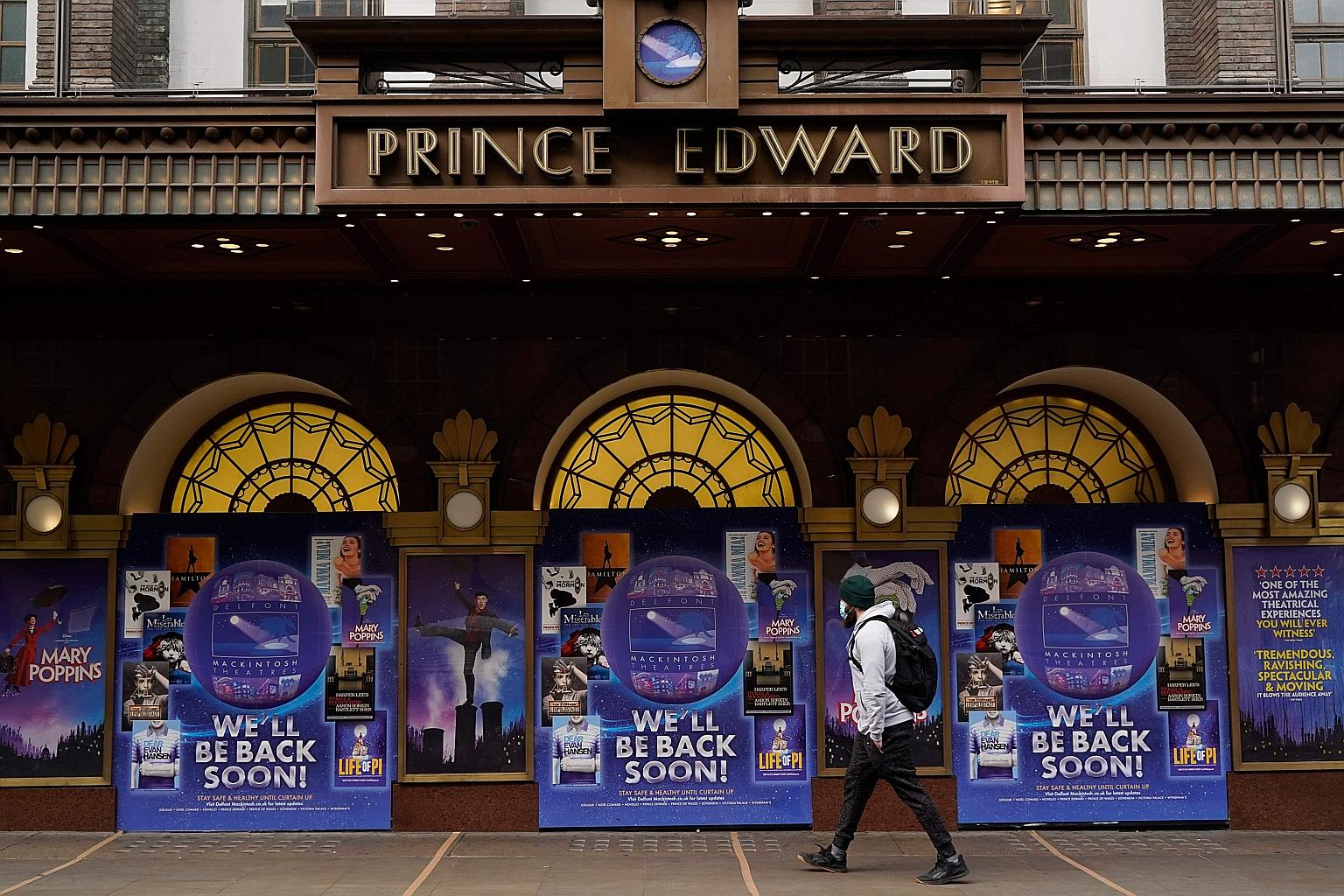Coronavirus pandemic
Coronavirus: Lockdown in England... again
Most support stay-at-home policy, but concerns are mounting over impact on economy and mental health
Sign up now: Get ST's newsletters delivered to your inbox

A closed theatre in London yesterday, the day England entered its second lockdown to curb the spread of the coronavirus. The restrictions include a return to working from home where possible and the closure of all non-essential shops and services. Britain is among the world's hardest-hit countries, with over one million cases.
PHOTO: AGENCE FRANCE-PRESSE
Follow topic:
LONDON • England's 56 million people entered a second lockdown yesterday, with many downing a final round of drinks and in some cities scuffling with police as scepticism mounts about the return to stringent curbs.
Late-night revellers clashed with police, including in parts of London and the northern city of Leeds, while lengthy traffic jams developed in the hours before midnight as motorists sought to escape the capital.
Hairdressers have been deluged this week, and winding queues snaked outside clothes and other retailers on the final day of pre-lockdown shopping.
Last weekend, Prime Minister Boris Johnson abandoned a system of regional curbs and announced an England-wide shutdown, after dire warnings that hospitals could soon be overwhelmed.
While opinion polls suggest overall public backing for the stay-at-home policy, concerns are mounting about the impact on the economy and on mental health.
"For us, it's absolutely insane," said Mr Faraj Faraj, head of operations at the London food market Mercato Metropolitano.
"To go through this again, just before Christmas, is actually death by a thousand cuts. We will adapt, we will survive, but we have to take a different approach," he said.
"I know we need to get the cases under control, but let's use this time to get our contact tracing done properly."
To shore up Britain's reeling economy, the Bank of England yesterday unveiled an extra £150 billion (S$265 billion), on top of new measures to subsidise the wages of furloughed workers until March.
Mr Johnson, insisting the lockdown will end on Dec 2, is pinning his hopes on an ambitious new programme of Covid-19 testing to detect and isolate infected people, starting with a city-wide trial launching in Liverpool today.
But so far, despite government spending of £12 billion on testing programmes, researchers say that only one in five of confirmed cases has been properly isolating, and officials have been failing to reach most of their contacts.
When the country entered its first lockdown in March in springtime, support was strong. But compliance with coronavirus measures has been fraying the longer they drag on into the winter.
A sizeable minority of 34 MPs from Mr Johnson's ruling Conservative Party rebelled against the new measures on Wednesday during a vote in Parliament hours before they took effect.
But Mr Johnson pointed to the experience of France and others in Europe, where countries have been seeking mutual support to prevent their own health systems getting swamped.
"I'm not prepared to take the risk with the lives of the British people," he told Parliament.
The restrictions include a return to working from home where possible and the closure of all non-essential shops and services. Schools will remain open, however.
Britain is among the world's hardest-hit countries, with nearly 48,000 deaths linked to Covid-19 from over one million positive cases.
AGENCE FRANCE-PRESSE

